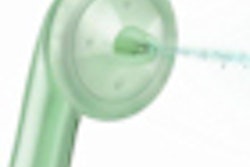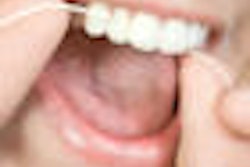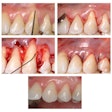A study published in the Journal of Periodontology (July 2008, Vol. 79:8, pp. 1426-1433) used 51 sets of twins between the ages of 12 and 21 to demonstrates what dentists have been telling their patients for years: flossing can help reduce the amount of gum-disease-causing bacteria in the mouth.
In the study, conducted at New York University, each set of twins was randomly assigned a two-week treatment regimen, with one twin using a manual toothbrush and toothpaste and the other twin brushing with a manual toothbrush and toothpaste, plus flossing. At the end of the two weeks, samples were taken from both twins and compared for levels of bacteria commonly associated with periodontal disease.
The findings indicated that the twins who did not floss had significantly more of the bacteria associated with periodontal disease.
"Twins tend to share the same or similar environmental factors such as dietary habits, health and life practices, as well as genetics," said Kenneth Kornman, D.D.S., editor of the Journal of Periodontology. "In this case, the only difference was flossing, and the outcome was significant."



















